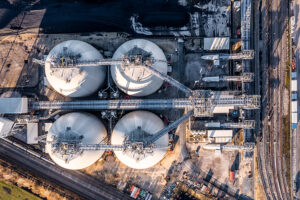Verdus Energy Unveils Biomass Technology for Carbon-Negative Farming
New Zealand-based Verdus Energy & Associates has introduced its Biomass Conversion Technology (BCT), aiming to help dairy and livestock farms achieve carbon-negative operations while producing a wide range of green products.

Developed over 15 years and now in its fifth generation, the modular BCT system applies circular economy principles and energy-neutral processes to convert animal manure and agricultural residues into valuable commodities with minimal environmental impact.
Each module, shipped in ten containers and assembled in under a month, can process 36 tonnes of dry biomass per day. The system operates with negligible emissions and no residual waste, designed for smaller, decentralised deployment across farms, forests, and industrial sites.
The technology handles diverse feedstocks—including cattle manure, poultry litter, crop residues, and municipal solid waste—and transforms them into more than 200 marketable products. These include renewable diesel, sustainable aviation fuel (SAF), biochar, green fertilisers, organic pesticides, bio-oils, electricity, and carbon credits.
Verdus highlights biochar as a critical output: each tonne applied to soil sequesters three tonnes of CO₂, and when fed to cattle, can cut methane emissions by up to 22%. Overall, the company claims its solutions can reduce greenhouse gas emissions by up to 187%.
The company has already secured partnerships with governments, primary producers, energy firms, and waste managers. With New Zealand alone generating over 20 million tonnes of surplus feedstock annually, Verdus plans rapid global expansion to meet rising demand.
Kevin Smith, President and COO of Verdus Energy, noted that the technology has already proven itself commercially:
“Version 4.0 has been operating for more than two years, producing carbon fuel pellets for a major mining company. Rollout of V5.0 begins in Q4 2025, with North American production scheduled for 2026.”
Smith added:
“Verdus Energy is not just addressing waste—it is creating a new model for resource recovery, climate resilience, and economic regeneration.”






